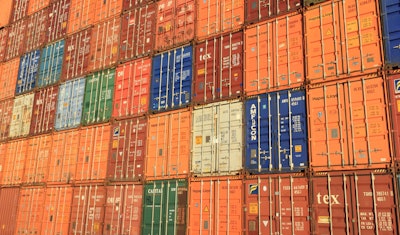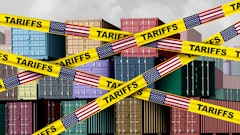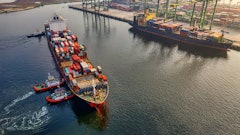
There is significant market volatility that continues to disrupt the container shipping industry. With a significant oversupply of containers and a further influx of more TEUs in 2023, shipping lines continue to reduce vessel capacity and suspend services by considerable blank sailings, according to the market forecaster issued today by Container xChange. In fact, some shippers plan to continue making capacity adjustments on services from Asia to North America, Europe and the Mediterranean to better align with demand fluctuations.
“In 2023, there is a high possibility of an all-out price war. It doesn’t seem that the capacity restrictions that we have seen in the past two years are due to return, so we’ll just have ample capacity both on the vessel as well as on the container side. With the competitive dynamics in the container shipping and liner industry, I don't expect especially the big players to hold back, and we do expect prices to come down to almost variable costs. We also foresee market consolidation,” says Christian Roeloffs, co-founder and CEO of Container xChange.
From Container xChange:
- Disruptions like COVID-19 and subsequent lockdowns, the Russia-Ukraine war, geopolitical risks and more continue to hamper the industry.
- Container prices skyrocketed soon after the pandemic hit because there were not enough containers to fulfil the rising demand.
- The pre-peak season in 2022 saw record container throughput in import-heavy ports. Now that the stocks have been filled, the demand is plummeting.
- Inflation and the energy crisis are leading up to cautious spending, which will have its own impact on the container industry.
- The shipping industry will survive this.
“Tight grip on costs becomes paramount for freight forwarders into the year 2023. While on one hand there will be a great deal of negotiation with shipping lines and on the other hand, operational cost optimization will be crucial for the forwarders. There will be careful monitoring into the demurrage and detention charges for instance, insurance charges, claims etc. As capacity on the ocean side becomes more abundant, there is a valid business case for using SOCs, which not just offer flexibility but [also] greater control to the forwarders,” says Dr. Johannes Schlingmeier, co-founder and CEO, Container xChange.




















